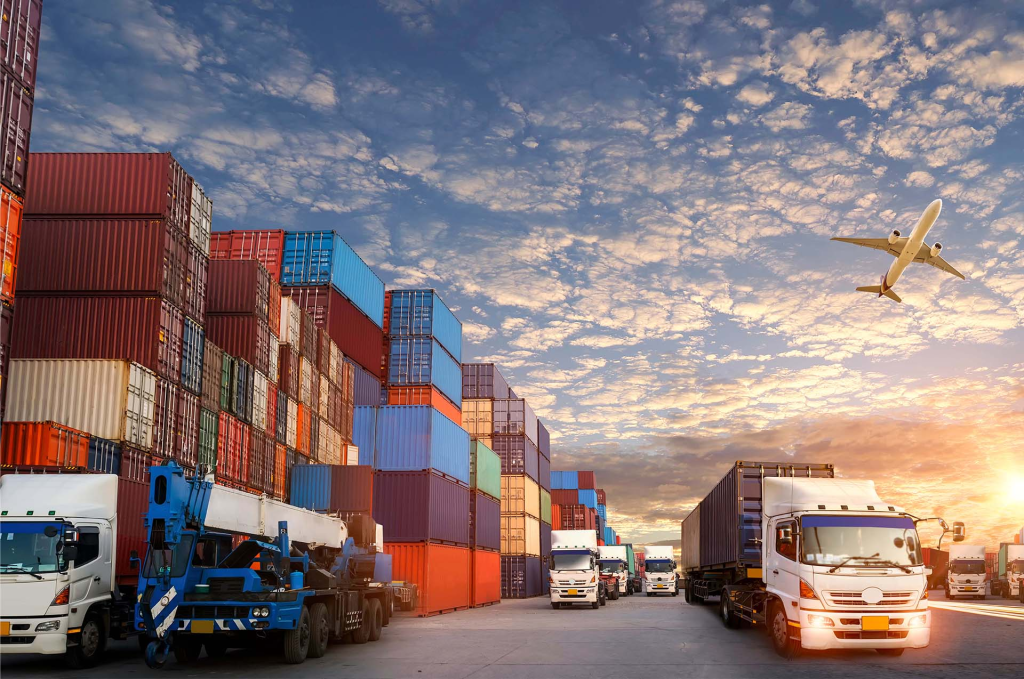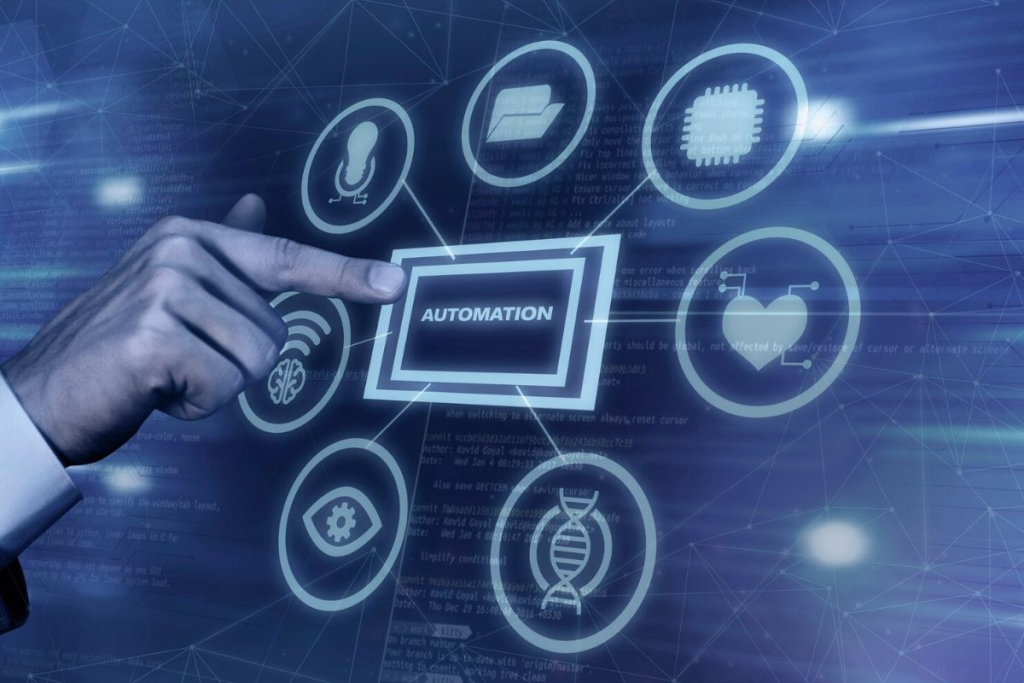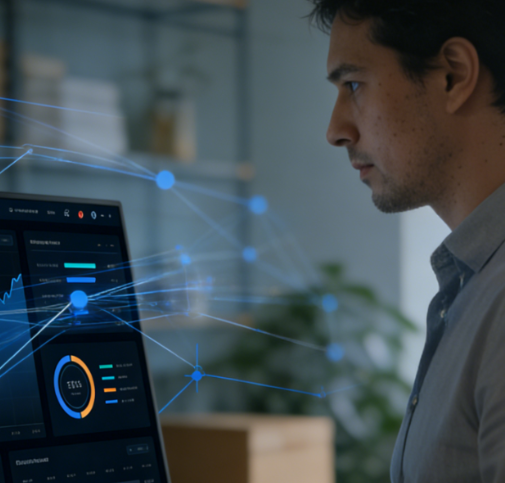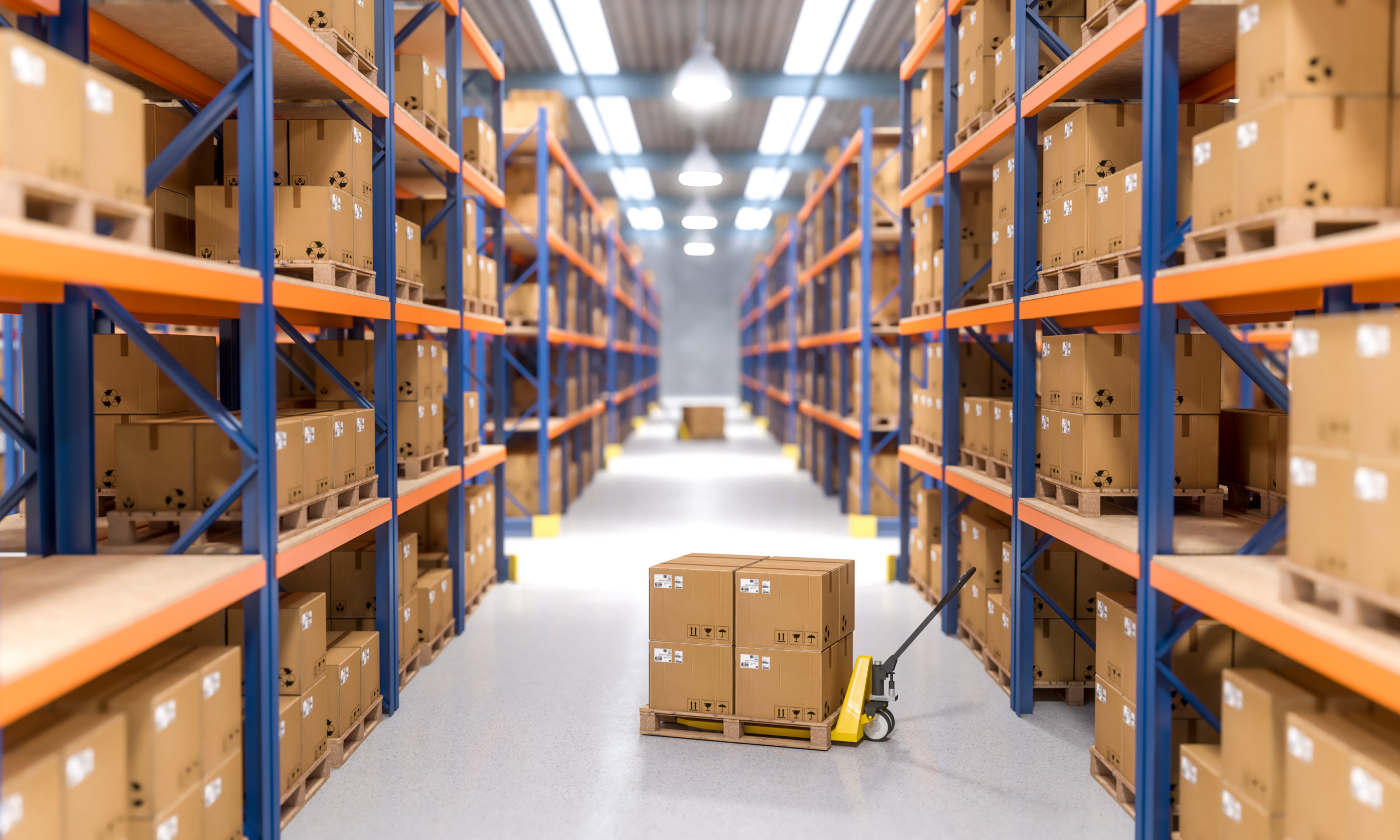Intelligente Lieferketten: Die wichtigsten Innovationen und ihre Bedeutung für Unternehmen
Smart Lieferketten verändern die Art und Weise, wie Unternehmen ihre Logistik und ihren Betrieb verwalten. Durch den Einsatz fortschrittlicher Technologien wie dem Internet der Dinge (IoT), künstlicher Intelligenz (KI), maschinellem Lernen (ML), Blockchain und Automatisierung können Unternehmen ihre Prozesse rationalisieren, die Effizienz verbessern und der Konkurrenz einen Schritt voraus sein. In diesem Artikel werden die wichtigsten Innovationen innerhalb intelligenter Lieferketten aufgeschlüsselt und erklärt, wie sie Unternehmen zugutekommen.

1. Echtzeit-Tracking mit IoT
Die Internet der Dinge (IoT) hat das Lieferkettenmanagement revolutioniert, indem es eine Verfolgung in Echtzeit ermöglicht. IoT-Sensoren überwachen Sendungen, Bestände und Geräte und geben Unternehmen einen Überblick über ihre gesamte Lieferkette.
Mit IoT können Unternehmen den Standort und den Zustand von Waren während des gesamten Versandprozesses verfolgen. So können beispielsweise temperaturempfindliche Produkte überwacht werden, um sicherzustellen, dass sie sich während des Transports innerhalb des erforderlichen Bereichs befinden. Dank dieser Echtzeitdaten können Unternehmen potenzielle Probleme schnell erkennen und beheben, wodurch Verzögerungen verringert und die Gesamteffizienz verbessert werden.
2. KI und maschinelles Lernen in der Logistik für klügere Entscheidungen

Künstliche Intelligenz (KI) und maschinelles Lernen (ML) helfen Unternehmen, intelligentere, datengesteuerte Entscheidungen zu treffen. Durch die Analyse großer Datenmengen können diese Technologien Muster und Trends erkennen, die Menschen möglicherweise übersehen.
In Lieferketten werden KI und ML für verschiedene Zwecke eingesetzt:
- Nachfrageprognose: Genauere Vorhersage der Produktnachfrage zur Vermeidung von Überbeständen oder Fehlbeständen.
- Optimierung der Route: KI hilft Unternehmen bei der Auswahl der effizientesten Routen für Lieferungunter Berücksichtigung von Faktoren wie Verkehr und Wetter.
- Risikomanagement: KI kann potenzielle Störungen in der Lieferkette erkennen und Möglichkeiten zur Risikominderung vorschlagen, bevor sie sich auf den Betrieb auswirken.
Durch den Einsatz von KI und ML können Unternehmen ihre Prognosen verbessern, Kosten senken und die Gesamteffizienz ihrer Lieferketten steigern.
3. Blockchain für Transparenz und Sicherheit

Blockchain-Technologie wird zunehmend in Lieferketten eingesetzt, um für Transparenz und sichere Transaktionen zu sorgen. Mit einer Blockchain wird ein unveränderliches Hauptbuch erstellt, in dem jede Transaktion aufgezeichnet wird, so dass die Herkunft der Produkte und ihre Bewegung durch die Lieferkette leicht nachvollzogen werden können.
Blockchain bietet mehrere Vorteile:
- Transparenz: Jeder Schritt auf dem Weg eines Produkts wird dokumentiert, wodurch die Wahrscheinlichkeit von Betrug verringert wird.
- Rückverfolgbarkeit: Unternehmen können den genauen Ursprung von Produkten zurückverfolgen, was besonders in Branchen wie der Lebensmittel- und Pharmaindustrie von Nutzen ist.
- Sicherheit: Der dezentrale Charakter der Blockchain gewährleistet, dass die Daten sicher sind und nicht verändert oder verfälscht werden können.
Mit Blockchain können Unternehmen ihren Kunden Sicherheit über die Echtheit und Qualität ihrer Produkte bieten und gleichzeitig die Einhaltung von Vorschriften verbessern und Betrug reduzieren.
4. Automatisierung zur Rationalisierung von Prozessen

Automatisierung ist ein wichtiger Bestandteil intelligenter Lieferketten und trägt dazu bei, manuelle Arbeit zu reduzieren und die betriebliche Effizienz zu verbessern. Robotik, automatisierte Lager und autonome Fahrzeuge werden in der Logistik immer häufiger eingesetzt.
- Robotergestützte Prozessautomatisierung (RPA): RPA übernimmt sich wiederholende Aufgaben wie die Auftragsabwicklung und die Bestandsverwaltung und setzt damit Personal für komplexere Aufgaben frei.
- Robotik in Lagern: Roboter können Aufgaben wie das Sortieren, Verpacken und Bewegen von Waren übernehmen und so den Abwicklungsprozess beschleunigen.
- Autonome Lieferfahrzeuge: Drohnen und selbstfahrende Lkw liefern Waren schneller und effizienter aus, insbesondere bei der Zustellung auf der letzten Meile.
Durch die Automatisierung wichtiger Prozesse können Unternehmen die Genauigkeit verbessern, die Arbeitskosten senken und die Abläufe beschleunigen, so dass sie ihre Lieferkettenaktivitäten effizienter gestalten können.
5. Big Data und Analysen für eine bessere Entscheidungsfindung

Mit dem Aufkommen intelligenter Lieferketten haben die Unternehmen nun Zugang zu riesigen Datenmengen. Große Daten Analytik ermöglicht es Unternehmen, bessere Entscheidungen zu treffen, indem es Einblicke in Verkaufstrends, Kundenpräferenzen und Lieferantenleistungen bietet.
- Optimierung der Bestände: Die Datenanalyse hilft Unternehmen, Nachfragemuster zu verstehen und die Lagerbestände entsprechend anzupassen, um Engpässe oder Überbestände zu vermeiden.
- Leistung des Lieferanten: Durch die Analyse von Daten über die Zuverlässigkeit von Lieferanten können Unternehmen die besten Lieferanten auswählen und ihre Beschaffungsprozesse verbessern.
- Kundenzufriedenheit: Mit Hilfe von Analysen können Verbesserungsmöglichkeiten in der Lieferkette ermittelt werden, so dass die Unternehmen die Lieferzeiten und den Kundenservice insgesamt verbessern können.
Durch die Nutzung von Datenanalysen können Unternehmen ihre Lieferkettenabläufe optimieren, Kosten senken und einen besseren Kundenservice bieten.
6. Nachhaltigkeit in intelligenten Lieferketten

Nachhaltigkeit wird für viele Unternehmen zu einer der wichtigsten Prioritäten. Intelligente Lieferketten ermöglichen es Unternehmen, umweltbewusster zu werden und gleichzeitig effizient zu bleiben.
- Optimierung der Route: KI kann dazu beitragen, den Kraftstoffverbrauch zu senken, indem sie die effizientesten Lieferrouten findet und die Kohlenstoffemissionen reduziert.
- Energieeffiziente Lagerhäuser: Automatisierung und intelligente Energiesysteme helfen, den Energieverbrauch zu senken.
- Nachhaltige Beschaffung: Dank der verbesserten Transparenz können die Unternehmen nachhaltigere Entscheidungen treffen und sicherstellen, dass die Rohstoffe auf ethische und nachhaltige Weise beschafft werden.
Da die Verbraucher immer umweltbewusster werden, ist die Integration der Nachhaltigkeit in die Lieferketten nicht mehr nur ein Trend, sondern eine Notwendigkeit.
Schlussfolgerung
Intelligente Lieferketten verändern die Abläufe in den Unternehmen, indem sie die Effizienz verbessern, die Kosten senken und die Effizienz steigern. Kundenzufriedenheit. Mithilfe von Technologien wie IoT, KI, Blockchain, Automatisierung und Datenanalyse können Unternehmen ihre Prozesse optimieren, Risiken reduzieren und wettbewerbsfähig bleiben.
Da sich diese Technologien weiterentwickeln, müssen sich Unternehmen anpassen, um in der komplexen Welt der Lieferketten die Nase vorn zu haben. Intelligentere Lieferketten führen zu mehr Effizienz, Transparenz und engeren Kundenbeziehungen.
Einblicke in die Industrie
Nachrichten über den Posteingang
Nulla turp dis cursus. Integer liberos euismod pretium faucibua








